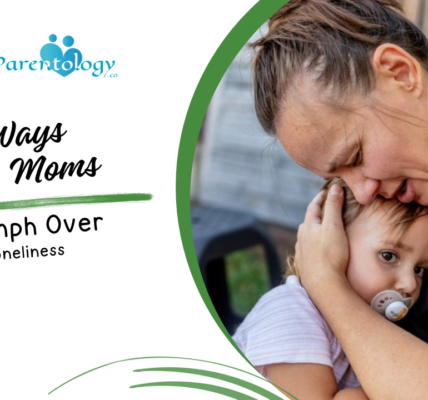5 Advantages and 5 Disadvantages of Single Parenting Every Parent Should Know
Navigating the realms of parenthood is a monumental journey, and for some, the path leads to single parenting. While it comes with unique hurdles, single parenting can also be immensely rewarding. This article delves into the five advantages and disadvantages of single parenting, shedding light on the intricacies that define this parenting style.
Advantages of Single Parenting:
-
Strengthened Bond with Children:
Single parents often develop remarkably close relationships with their children due to the intensified quality time spent together. This heightened bond stems from the increased one-on-one interactions and the deeper emotional connection fostered by the sole caregiver role. Spending more time engaging in meaningful conversations, activities, and shared experiences enables single parents to understand their children better, nurturing trust and fostering open communication.
-
Enhanced Decision-Making Skills:
Managing the household, finances, and parenting decisions solo instills a sense of independence and sharpens decision-making abilities. Single parents become adept problem solvers, making informed and effective decisions that cater to their children’s needs. The responsibility of making crucial choices without a partner’s input encourages resourcefulness and quick thinking, honing a valuable life skill set for both the parent and child.
-
Empowerment and Self-Reliance:
The journey of single parenting empowers individuals, fostering self-reliance and resilience. Overcoming challenges alone instills a deep sense of self-worth, demonstrating to children the power of determination and adaptability in the face of adversity. Single parents often serve as role models, showcasing the importance of self-reliance, setting an inspiring example for their children to navigate life’s obstacles independently.
-
Flexible Parenting Styles:
With the absence of a co-parent, single parents have the freedom to implement personalized parenting approaches that cater specifically to their child’s unique needs. This flexibility allows for tailored nurturing and guidance, adapting to the child’s temperament, interests, and developmental milestones. Single parents can pivot and adjust their parenting style, providing a supportive and understanding environment conducive to their child’s growth and well-being.
-
Stronger Emotional Bonds:
The shared experiences of triumphs and challenges forge stronger emotional bonds between single parents and their children. Weathering life’s storms together fosters resilience, empathy, and emotional strength in both the parent and child. This shared journey of overcoming obstacles creates a nurturing environment that encourages open communication, empathy, and understanding, strengthening the emotional connection between parent and child.
Disadvantages of Single Parenting:
-
Increased Responsibility and Workload:
Single parents bear the weight of all household responsibilities, including financial obligations, nurturing, and maintaining the home. The overwhelming workload and constant juggling of multiple roles can lead to physical and emotional exhaustion, often leaving little time for personal relaxation or pursuits.
-
Limited Time for Self-Care:
Balancing the demands of parenting and personal needs becomes arduous for single parents. The limited time available for self-care and rejuvenation can impact mental health, leading to stress and burnout if adequate measures for self-care aren’t prioritized.
-
Financial Strain:
Solely shouldering financial burdens can create significant stress. Single parents may face financial strain due to the absence of a second income, impacting their ability to provide desired opportunities and affecting the quality of life for both the parent and child.
-
Emotional Stress and Burnout:
Juggling multiple roles without adequate support can lead to emotional stress and burnout. The pressure of being the sole emotional anchor for the child while managing personal emotions can be overwhelming, affecting mental health and overall well-being.
-
Lack of Parental Support System:
Single parents may experience a lack of a robust support system, affecting their ability to seek guidance or share responsibilities. This isolation can intensify the challenges of single parenting, making it harder to navigate through difficult situations or seek emotional support when needed.
Additional Insights on Single Parenting:
Challenges and Resilience:
Single parenting is a journey fraught with challenges that demand resilience and adaptability. While it may initially seem overwhelming, many single parents exhibit remarkable strength in overcoming obstacles, creating stable and loving environments for their children. The ability to navigate hardships with resilience showcases the strength of character inherent in single parenting.
Support Networks and Resources:
Seeking support from various networks, such as family, friends, support groups, or community resources, can significantly alleviate the burdens of single parenting. These networks offer valuable emotional support, guidance, and practical assistance, empowering single parents to navigate their journey more effectively. Online communities and local organizations tailored for single parents provide a platform for sharing experiences and seeking advice.
Co-Parenting Dynamics:
In situations involving co-parenting, effective communication and collaboration between both parents play a pivotal role in ensuring a stable environment for the child. Establishing clear boundaries, maintaining respectful interactions, and prioritizing the child’s well-being are key aspects of successful co-parenting, even in long-distance or separated scenarios.
Impact on Children:
Children raised in single-parent households often exhibit resilience and adaptability. While challenges exist, these children can develop strong character traits, empathy, and independence. However, providing a supportive environment and ensuring open communication are crucial in mitigating any potential negative impacts on their development.
Legal Considerations and Custody Arrangements:
Navigating legal aspects and custody arrangements can be complex and emotionally taxing for single parents. Understanding legal rights, seeking legal counsel if necessary, and establishing clear custody arrangements contribute to a stable and predictable environment for the child.
Emotional Well-being of Single Parents:
Prioritizing mental health and emotional well-being is paramount for single parents. Self-care practices, seeking professional help if needed, and fostering a support system are crucial steps in maintaining a healthy state of mind amidst the responsibilities of single parenting.
Financial Management for Single Parents:
Financial planning and management become crucial aspects of single parenting. Creating a budget, prioritizing expenses, and seeking financial assistance or benefits available for single parents can help alleviate financial stress. Exploring options such as childcare subsidies, educational grants, or government assistance programs can provide much-needed financial relief.
Work-Life Balance:
Achieving a balance between work commitments and parenting responsibilities is a challenge for single parents. Flexible work arrangements, such as remote work or flexible hours, can offer more control over schedules, enabling better management of parental duties while fulfilling professional responsibilities. Employing effective time management strategies becomes essential in maintaining this balance.
Positive Parenting Techniques:
Implementing positive parenting techniques fosters a nurturing environment for children in single-parent households. Encouraging open communication, setting clear boundaries, and utilizing positive reinforcement techniques contribute to a healthy parent-child relationship. Consistency, patience, and active listening play crucial roles in effective parenting.
Education and Development:
Investing in a child’s education and overall development is a priority for single parents. Exploring educational opportunities, extracurricular activities, and fostering a stimulating learning environment at home contribute significantly to a child’s growth and future prospects. Seeking guidance from educators or child development specialists can aid in providing holistic development for the child.
Building a Support Network:
Establishing a robust support network is vital for single parents. Engaging with other parents, joining parenting classes, or participating in local community events create opportunities for networking and building meaningful connections. Additionally, forming friendships with other single parents can offer shared experiences and mutual support.
Resilience and Growth:
Embracing resilience and personal growth is fundamental in the journey of single parenting. Overcoming challenges, learning from experiences, and adapting to changing circumstances foster personal development. Encouraging children to embrace challenges, learn from setbacks, and develop resilience prepares them to navigate life’s complexities.
FAQs about Single Parenting:
-
How does single parenting impact children’s development?
- Answer: Single parenting can influence children’s development emotionally and socially. While it may pose challenges, children raised by single parents can develop resilience, independence, and empathy. The quality of parent-child relationships and the presence of a supportive environment play crucial roles in their development.
-
What strategies can single parents employ to manage stress effectively?
- Answer: Managing stress involves prioritizing self-care, setting realistic expectations, seeking support networks, practicing time management, and embracing resilience-building activities such as exercise, meditation, or hobbies.
-
Are there community resources available to support single parents?
- Answer: Yes, various community resources offer support to single parents, including local parenting groups, online forums, government assistance programs, counseling services, and non-profit organizations dedicated to assisting single-parent families.
-
How can single parents ensure a healthy work-life balance?
- Answer: Achieving a healthy work-life balance involves effective time management, seeking flexible work arrangements if possible, delegating tasks, and setting boundaries between work and personal life.
-
What are some common misconceptions about single parenting?
- Answer: Common misconceptions include assuming single parents are incapable of providing a stable environment, that children from single-parent households are disadvantaged, or that single parents are solely responsible for their situation.
-
How does co-parenting from a distance affect the child’s well-being?
- Answer: Co-parenting from a distance requires effective communication and cooperation between parents to ensure consistency and emotional support for the child. Maintaining regular contact and fostering a positive co-parenting relationship are crucial for the child’s well-being.
-
What legal considerations should single parents be aware of?
- Answer: Legal considerations may include child custody arrangements, visitation rights, child support, and estate planning. Seeking legal advice to understand rights and responsibilities is essential for single parents.
-
How does society perceive single parenting, and how can this perception be changed?
- Answer: Society’s perception of single parenting may vary. Educating and advocating for awareness regarding the challenges and strengths of single parenting can contribute to changing perceptions.
-
What role does communication play in successful single parenting?
- Answer: Effective communication fosters trust, understanding, and a supportive environment. Open dialogue between parent and child enhances the parent-child relationship, encouraging healthy emotional development.
-
Are there support groups or online communities specifically designed for single parents?
- Answer: Yes, there are numerous support groups, online forums, and social networks tailored for single parents where they can seek advice, share experiences, and find valuable resources.
Conclusion:
In conclusion, single parenting is a journey filled with challenges and opportunities for growth. Understanding the nuances, seeking support networks, employing effective strategies, and prioritizing the well-being of both parent and child are vital aspects of navigating this journey successfully. To delve deeper into effective single parenting strategies and resources, explore Parentology.co.



